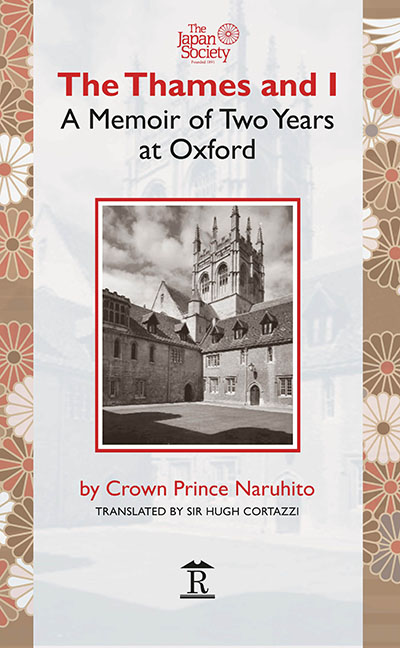Book contents
- Frontmatter
- Foreword
- Preface to the English edition
- Contents
- Foreword to the Paperback edition
- Preface to the Japanese edition (1992)
- Translator’s Note by Hugh Cortazzi
- The Gakushūin
- Chapter 1 Ten Days in the Japanese Ambassador’s Residence:
- Chapter 2 Life in Colonel Hall’s House:
- Chapter 3 Entering Oxford:
- Chapter 4 About Oxford:
- Chapter 5 Daily Life at Oxford:
- Chapter 6 Cultural Life at Oxford:
- Chapter 7 Sport:
- Chapter 8 Life as a Research Student at Oxford:
- Chapter 9 Travels in Britain and Abroad:
- Chapter 10 Looking Back on My Two Years’ Stay:
- Postscript
- Bibliography
- Index
Chapter 10 - Looking Back on My Two Years’ Stay:
Published online by Cambridge University Press: 13 May 2022
- Frontmatter
- Foreword
- Preface to the English edition
- Contents
- Foreword to the Paperback edition
- Preface to the Japanese edition (1992)
- Translator’s Note by Hugh Cortazzi
- The Gakushūin
- Chapter 1 Ten Days in the Japanese Ambassador’s Residence:
- Chapter 2 Life in Colonel Hall’s House:
- Chapter 3 Entering Oxford:
- Chapter 4 About Oxford:
- Chapter 5 Daily Life at Oxford:
- Chapter 6 Cultural Life at Oxford:
- Chapter 7 Sport:
- Chapter 8 Life as a Research Student at Oxford:
- Chapter 9 Travels in Britain and Abroad:
- Chapter 10 Looking Back on My Two Years’ Stay:
- Postscript
- Bibliography
- Index
Summary
The English people as I saw them
In concluding this memoir I should like to say a few words about my impressions of England, and record a few of the feelings which made up my experience of Britain.
One point I should make to begin with is that in Britain the old and the new exist harmoniously side by side. Soon after my arrival, I attended the official opening of parliament and saw for myself the way in which Britain is a traditional country. At Oxford, I saw students wearing the traditional cap and gown pass in the streets youngsters in punk rock garb, but I did not feel that it was out of the ordinary. It seemed to me that both reflected the spirit of the place. This was after all a country which produced the Beatles and the miniskirt. I felt that, while the British attach importance to old traditions, they also have the ability to innovate. Take sports, for instance; there are many sports such as golf, rugby and cricket which started in Britain. The Industrial revolution took off in Britain before any other European country.
At Oxford, I could not avoid feeling the weight of tradition. I could see this in the solemn ceremonies which were performed in the same way as they had been for centuries, in the clothes which students had to wear for the entrance ceremony and the fact that the ceremony was conducted in Latin. I was impressed by the importance attached to history as shown for instance in the Latin Grace said at High Table in college and by the antique silver used there. The college system is too complicated to explain in a few words. But I thought that the way in which students in different disciplines lived and ate together and were given the opportunity to provoke one another's intellectual curiosity was admirable. At the Gakushu¯in, where I studied in the humanities faculty, the different subjects were taught on different floors. Even if you were in the humanities faculty it was difficult, unless you made a major effort, to establish contacts with students studying other subjects in the same faculty. It was even more difficult to do so with students in other disciplines.
- Type
- Chapter
- Information
- The Thames and IA Memoir of Two Years at Oxford, pp. 137 - 143Publisher: Amsterdam University PressPrint publication year: 2019

